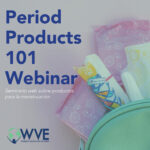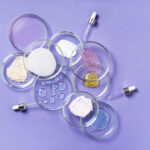Toxics Linked to Hormone Disruption and Asthma Found In Consumer Products
New Peer Reviewed Study Analyzed Broadest Range of Products Ever Tested
Public Health Advocates Support Full Ingredient Labeling and New Safety Rules
For immediate release:
March 8th, 2012
BOSTON – Toxic chemicals linked to the rising rates of endocrine disruption related disease on the rise were found in a broad array of consumer products and reported in a peer reviewed article in Environmental Health Perspectives today. The Silent Spring Institute tested 213 consumer products, including cleaning products, cosmetics, sunscreens, shower curtains, air fresheners, drier sheets, and other household goods made by Colgate, Unilever, S.C. Johnson, Johnson and Johnson, Procter & Gamble, Seventh Generation, and Ecover among other manufacturers.
“These test results show that both conventional and so-called green products contain hidden toxic chemicals that are not on product labels – so consumers have no way of avoiding them,” says Alexandra Scranton from Women’s Voices for the Earth, who recently conducted their own tests for hidden toxic chemicals in 20 top brand-name cleaning products. “Companies need to phase out these harmful chemicals, and we need a policy that standardizes labeling guidelines for cleaning products, so companies can’t keep these toxic chemicals a secret.”
Environmental health advocates across the nation see this new study as confirmation that ubiquitous chemical exposure is playing a factor in adverse health impacts.
Martha Arguello, with Physicians for Social Responsibility – Los Angeles, comments, “Silent Spring used Battelle Labs in Ohio, and they found 55 chemicals associated with endocrine disruption or with asthma, including parabens, BPA, triclosan, Alkylphenols, cyclosiloxanes. It is not good science to assume that cumulative exposure to these chemicals is safe.
“This new study found PVC products, including a pillow protector and shower curtain, contained high levels of the toxic phthalate DEHP,” explains Mike Schade from the Center for Health, Environment & Justice. “Phthalates have been banned in toys, but are widespread in many PVC products children come in contact with in schools and even at home. Phthalates have been linked to asthma, adverse impacts on brain development, and reproductive health problems in baby boys. Thankfully, there are safer cost-effective alternatives to phthalate-laden PVC products for our schools and homes.”
“Many products are targeted to women of color who suffer from high health disparities that can be linked directly to the endocrine disruptors found in these products. We can only hope that studies like this one inspire better policies and regulations of these dangerous chemicals,” says Janette Robinson-Flint from Black Women for Wellness. “Mother shouldn’t have to be a biochemist to protect themselves and their families from toxic chemicals in everyday products.”
“We know many folks have tested positive for BPA and Triclosan in our human biomonitoring studies,” says Sharyle Patton, Director of the Biomonitoring Resource Center at Commonweal, “One has to wonder if rising rates of associated health problems are linked to these exposures.”
Caroline Cox, Research Director, Center for Environmental Health, says, “These unnecessary, untested and unlabeled chemicals in dozens of everyday products threaten our children’s and families’ health. It’s past time for federal action that calls for evaluating chemicals for safety before they end up contaminating our homes and our bodies.”
“This is another example of the failure of federal law to protect workers and consumers,” said Sarah Doll from SAFER States, “States have been acting to protect consumers from toxic chemicals in products for years now, and will continue to move on these issues in the absence of federal reform.”
The products were tested in 2008, and the study authors acknowledge that product samples can vary and that some formulations may have changed.
Available for Interviews:
Martha Dina Argüello, Executive Director, Physicians for Social Responsibility — Los Angeles, CA. marguello@psr-la.org.310 261-0073, Martha can address a variety of toxic chemical exposure issues — on exposure in communities of color, about educating physicians, and women’s reproductive health.
Caroline Cox, Center for Environmental Health (510 655-3900 x308, caroline@ceh.org. Caroline can discuss the chemicals and need for environmental protections
Sarah Doll, National Director at SAFER States, sarah@saferstates.org, 503 522-6110, Sarah can address state policy efforts to stop toxic chemical exposure.
David Levine, CEO, American Sustainable Business Council, 917 359-9623 dlevine@asbcouncil.org., David can address how enforcing safety regulations for household products restores consumer confidence and makes the marketplace a more fair arena for US personal care product businesses.
Janette Robinson-Flint from Black Women for Wellness. Contact Nourbese Flint, , nourbese@bwwla.org, 323 290-5955. Jan can address inequities for women of color in regards to chemical exposure and health.
Sharyle Patton, Director, Commonweal Biomonitoring Resource Center, 415 779-1010, 415 686-4857. Sharyle is an expert on biomonitoring and chemical exposure issues.
Alexandra Scranton. Director of Science and Research. Women’s Voices for the Earth (WVE), alexs@womensvoices.org, 406 543-3747. Alex can describe WVE’s own testing of top brand-name cleaning products, legislation to label cleaning products, and how to make safer cleaners for a healthier home.
Mike Schade, Center for Health, Environment & Justice (CHEJ), New York. 718.873.3505 (cell), mike@chej.org. Mike Schade can address the manufacturing of polyvinyl chloride and the communities harmed by it, and the hazards PVC presents in everyday products.
Resources:
Silent Spring Institute www.silentspring.org
American Sustainable Business Council, www.asbcouncil.org
Black Women for Wellness, www.bwwla.com
Campaign for Safe Cosmetics
Center for Environmental Health, www.ceh.org
Center for Health, Environment & Justice, www.chej.org
Commonweal Biomonitoring Resource Center www.commonweal.org
Physicians for Social Responsibility – Los Angeles www.psr-la.org
Safer Chemicals, Healthy Families, www.saferchemicals.org
SAFER States, www.saferstates.com/
Women’s Voices for the Earth, womensvoices.org/





